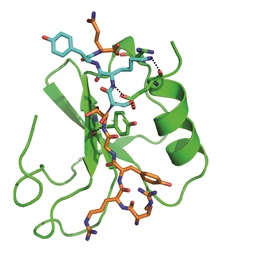IPEK researchers lead by Professor Oliver Söhnlein have developed a short peptide able to inhibit the signal pathway activation in monocytes allowing their adhesion to endothelial cells and penetration in sites of acute inflammation. Their findings appear in the latest issue of the journal “Science Translational Medicine”. Monocyte infiltration into sites of inflammation is initiated by a cascade of reactions that allows the monocytes to stick to and to squeeze between neighboring endothelial cells. Recruitment of large numbers of monocytes to the vascular wall is often preceeded by the activation of two other cell types – neutrophils (the most abundant class of leukocytes in the blood) and platelets. In the new study, Söhnlein and his colleagues focused on the role of soluble mediators released from neutrophils and platelets in the adhesion and recruitment of monocytes. “Both neutrophils and platelets synthesize specific signal proteins, which are encapsulated in storage vesicles and are secreted when the cells bind to damaged tissues,” Söhnlein explains. Moreover, “heteromeric” complexes formed between proteins released from the two cell types stimulate monocytes to bind to the vessel wall. Further reading:
http://www.en.uni-muenchen.de/news/newsarchiv/2015/soehnlein_monocytes.html
http://www.uni-muenchen.de/forschung/news/2015/soehnlein_monozyten.html
http://dzhk.de/dzhk-paper-of-the-month/paper-of-the-month/article/dezember-2015/

